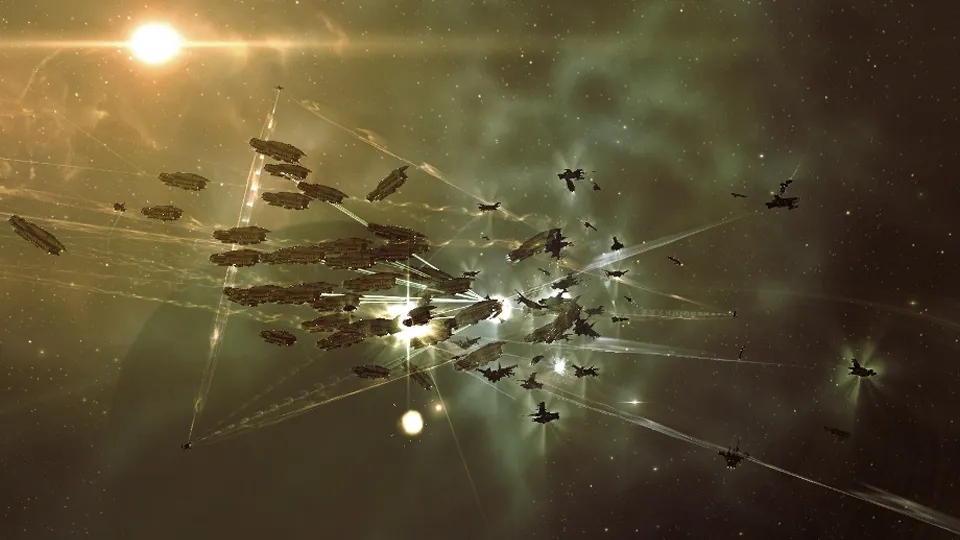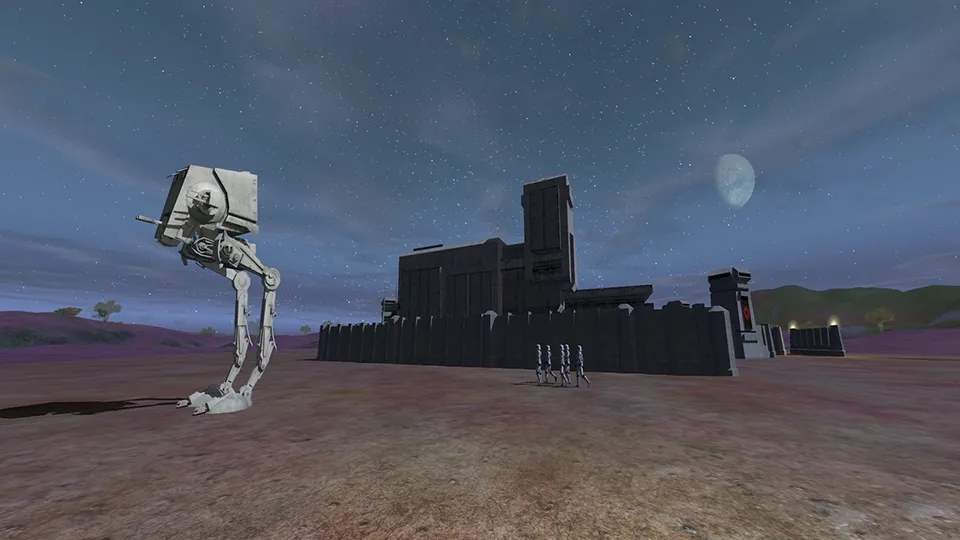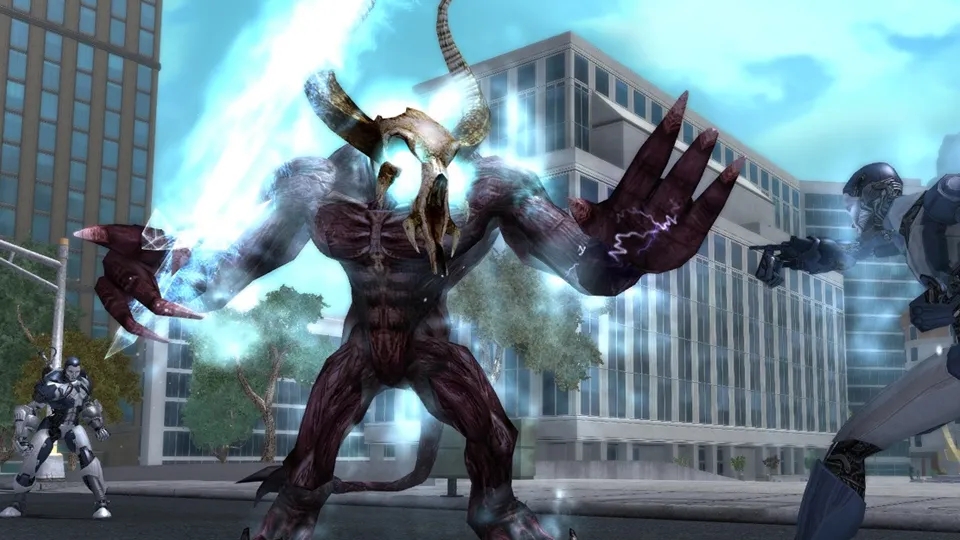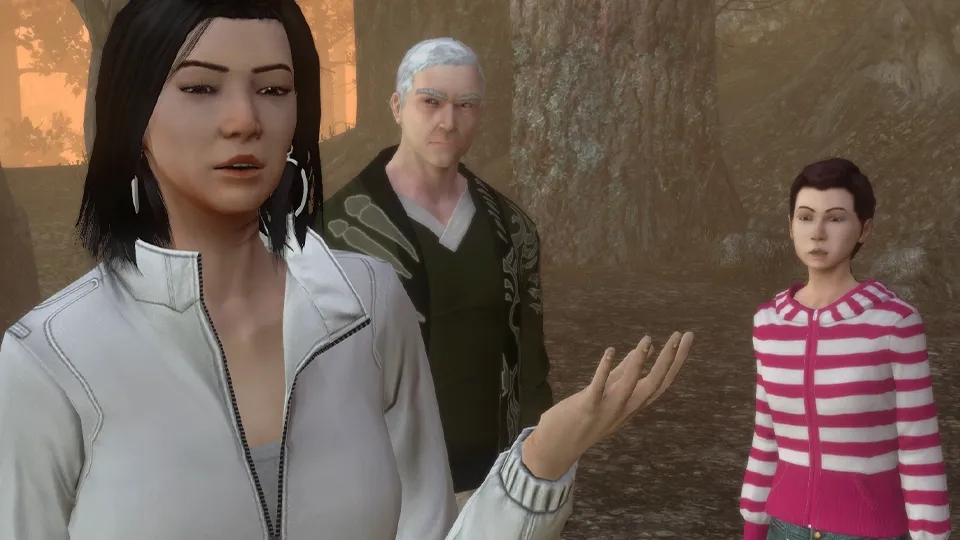It’s been a hot minute since I last posted here. And when I say a minute I mean half a year.
There are several reasons for this. A lack of time, a lack of motivation, and to some degree, a lack of passion. More than once over the past year I’ve been on the brink of just quietly shutting this blog down.
The thing is, I’ve barely played an MMO in the past six months. I jumped into Final Fantasy XIV to wrap up the post-Endwalker story back when Patch 6.5 hit servers in October, but besides that handful of hours — nada.
Instead, I’ve been getting my teeth into single-player games for the first time in some years. Among others, I’ve recently completed Starfield (great, but part of me wishes I’d have waited a few years for a more polished ‘complete’ edition), Jedi: Survivor (one of my top five favourite Star Wars games ever), and Final Fantasy VII: Remake (one of the best games I’ve ever played, period).
As I’m currently just starting out in Tears of the Kingdom — a game which, some 10 hours in, I can already tell is sheer genius — there looks to be no immediate end in sight to this foray.
With all my gaming time spent in these solo games, what business do I have talking about MMOs?
Mainstream MMO Journalism
That, at least, is what I thought was the reason behind my not posting. It took some time before the truth became apparent to me: I don’t (didn’t) know what the actual purpose of this website is anymore.
When I first started the site back in 2020 I had ambitions of writing the kind of stories that had stoked my love affair with the MMO genre. Stories about the people playing these games. People who were doing outlandish, provocative, and inspiring things in virtual worlds.
These emergent gameplay-focused stories were grist for the mill of New Games Journalism. Literary graduates who had spent as much of their student days playing games of Quake over LAN as they did studying or partying wistfully imagined themselves the Hunter S. Thompson of the virtual frontier. As highly readable as so many of those pieces were, in hindsight, a lot of it now seems too edgy — a byproduct of the writer’s desire to cause a revolution in a games press struggling to find its identity as print media’s relevancy waned.
By the time I came to getting this site off the ground, that vein of games journalism had, necessarily and for the better, been refined into something considerably less gonzo. A steady trickle of thoroughly-researched player profiles and event reports kept virtual world reporting alive throughout the 2010’s, with only one significant caveat: they were almost always about EVE Online.

As the MMO genre continued to lean more heavily into solo-friendly themepark-oriented gameplay, EVE Online remained one of the lone holdouts whose emergent gameplay could birth stories that shocked even in an era where online gaming had lost its novelty.
The occasional piece still breaks through (Rebekah Valentine’s excellent “How a Guild of ‘Old Timers’ Is Embracing Online Gaming All the Way to Retirement” at IGN being a recent example), but these days even EVE coverage is waning.
That game’s other advantage was that its stellar backdrops and panoramic battle scenes looked entirely unlike the cartoonish, and too-nerdy knights, wizards, and castles of World of Warcraft and the vast majority of other MMOs (the spectre of South Park‘s ‘Make Love, Not Warcraft’ still looms large). CCP Games’ flagship title has a prestige look that made it the perfect subject for legacy media periodicals wanting to show they were still relevant enough to cover the multi-billion dollar video game industry.
There’s an obvious factor of diminishing returns here though. How many stories about virtual corporate espionage is the average reader of these publications going to be interested in once they’ve got the gist of the thing?
As a non-EVE player with an above average investment in the genre I can tell you that even some of my favourite games journos couldn’t keep me coming back for more several thousand word long field reports after the first few.
The fact that I’ve never been an avid EVE player is only partially responsible for this. Just as investigative frontline virtual world reporting has declined in recent years, so too has my interest in it.
Perhaps it’s having read so many of these pieces over the years. Or perhaps there simply isn’t all that much interesting stuff going on in MMOs these days (I don’t believe this). More than anything it’s just that the novelty has long since worn off when it comes to playing games online with real people.
Enthusiast MMO Journalism
Fantastic MMO journalism is still happening on a daily basis thanks to sites like MassivelyOP, MMORPG.com, and MMOBomb. For years they’ve continued not only to do the very necessary job of reporting on news in our genre in an accurate and informed way, but they also churn out consistently thought-provoking features and opinion editorials.
There are also the legions of bloggers and vloggers out there who are creating MMO content on a regular basis. Reviews, previews, journals, retrospectives, guides, let’s play’s — all good stuff that I spend many hours of my week reading and watching (frequently more than I spend actually playing games).
Lest we forget the community aspect of these ventures: podcasts, forums, comments sections, subreddits, and streams. Suffice to say that this collective effort has doubtless done much to keep the MMO flame alight long after it’s heyday over a decade ago.

By the same token, all of this has left me, for the past six months, wondering what I specifically have to offer to the space.
Most of my content (and indeed most of the content that has drawn any traffic worth a hoot), has been about Star Wars Galaxies. It’s the one game that I feel I have any sort of specialist knowledge on and therefore the one game that I feel truly comfortable writing about.
Alas, I find myself straddled with that ‘content creator’ problem we hear of time and time again: being chained to one topic and fearing to stray from it lest we lose our established community or algorithmic clout.
Creating content around the broader MMO genre is largely thankless. People understandably care only to read about their own primary games and indeed ‘variety’ MMO content creators can cover games in only the broadest strokes. They have the same 24 hours in the day as everyone else, and even those who are lucky enough to make a living off their pursuits still wouldn’t have the time to become an expert in every one of the many hundreds of MMOs that have released over the past 25+ years (look out for a future post on just this topic in the coming days).
Still, plenty of variety MMO creators are out there doing good stuff, bolstered by their infectious personalities and the way they can use those talents to make viewers care about games outside of their usual playpens.
What’s Next For MMO Folklorist
I’ve thought long and hard about where my own skillset intersects with the established MMO content creation disciplines and how I can turn that into something that is unique and worthwhile even if I’m not actively playing MMOs quite as much as I’ve done in the past. Because I do still enjoy playing and learning about these games even if I’m at a point in my life where I want to also be spreading my limited spare time between other hobbies and pursuits.
You may have already spied that, along with a slight new look for the site, there’s a small blurb titled ‘About MMO Folklorist’ along the sidebar. It reads thus:
“Virtual worlds deserve preserving. This blog charts the history of MMORPGs and the various ongoing efforts to keep them from slipping into the digital aether.”
This mantra will drive the main bulk of the content on this site going forward, and I’m excited to develop and share the ideas I have that that will achieve that goal.
I don’t think it betrays the name of the blog, or the ideas I attempted to establish about it a few years back. The people who play these games are intrinsically connected with the history of them. Every single one of them, not just those who collect every achievement, spend years plotting to backstab their guild, or charge headlong into a pack of mobs shouting their name.
MMOs are monuments created lovingly over years by talented developers, but the players, and all the ways both big and small that they impact their community are the lifeblood of the thing. You can’t write about the history of the games they play without also writing about the people themselves.

It seems to be the right time to try and spread the good word about MMO preservation. New games in the genre (and by that I mean honest to goodness MMORPGs rather than survival or lobby titles) are becoming fewer, while the stalwarts have been around so long as to be wildly different to the game that launched. Big shutdowns aren’t as frequent as they were a few years back, but a handful of games are still vanishing each year.
At the same time, volunteer community groups are rising up in their droves to pick up where publishers have dropped the ball, making countless shuttered MMOs playable once more.
2024 began with a landmark moment in the rogue server scene when the City of Heroes: Homecoming project was given the blessing of the game’s original publisher NCSoft. Hopefully it will prove to be the start of a new trend (count me among those hoping NCSoft will revive WildStar next).
My list of Rogue Servers for Dead MMOs is consistently the best performing post on the site and it’s always a happy moment for me to see it shared on Reddit or Discord. I like to think that it’s helped lots of people to once again be able to play the games they thought lost, and subsequently bolster those game’s communities.
I’ll be updating that list and some of the other evergreen content on the site over the next few days. I’m also hoping to create more resources like this and will be looking to collaborate with these teams to help spread the word about what they’re doing.
You can also look forward to regular essays on MMO preservation and history. There’s lots of stuff I need to learn to be an effective advocate for this so I hope I can find other like-minded people to come along on the journey with me. Please do use the comments section to share your own experiences and thoughts.
All of this research will also inform my next book, which I’m looking to announce later this year after many years of research.
Oh, and for those asking: yes, the monthly Star Wars Galaxies Rogue Server Roundup will be returning.


Leave a Reply